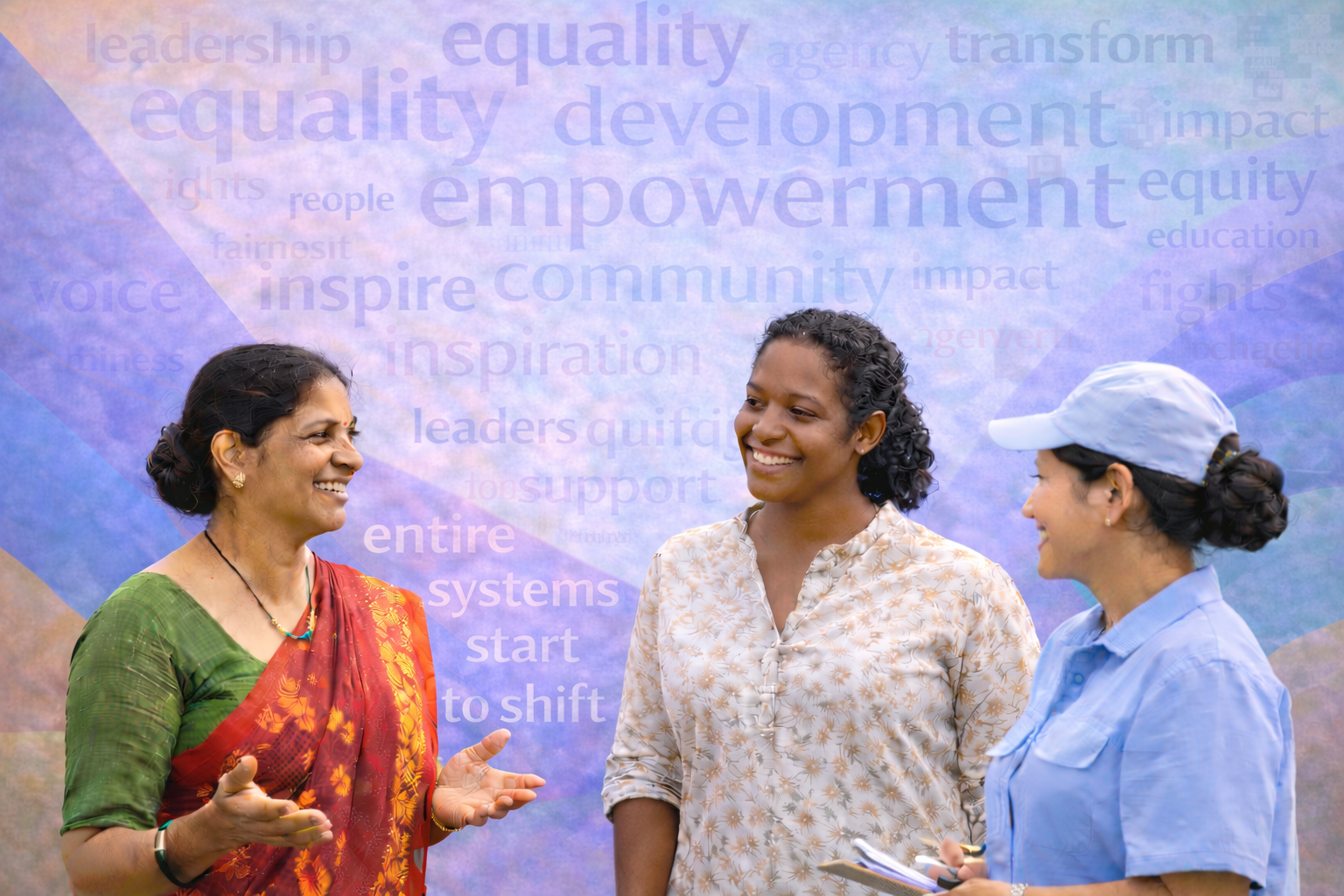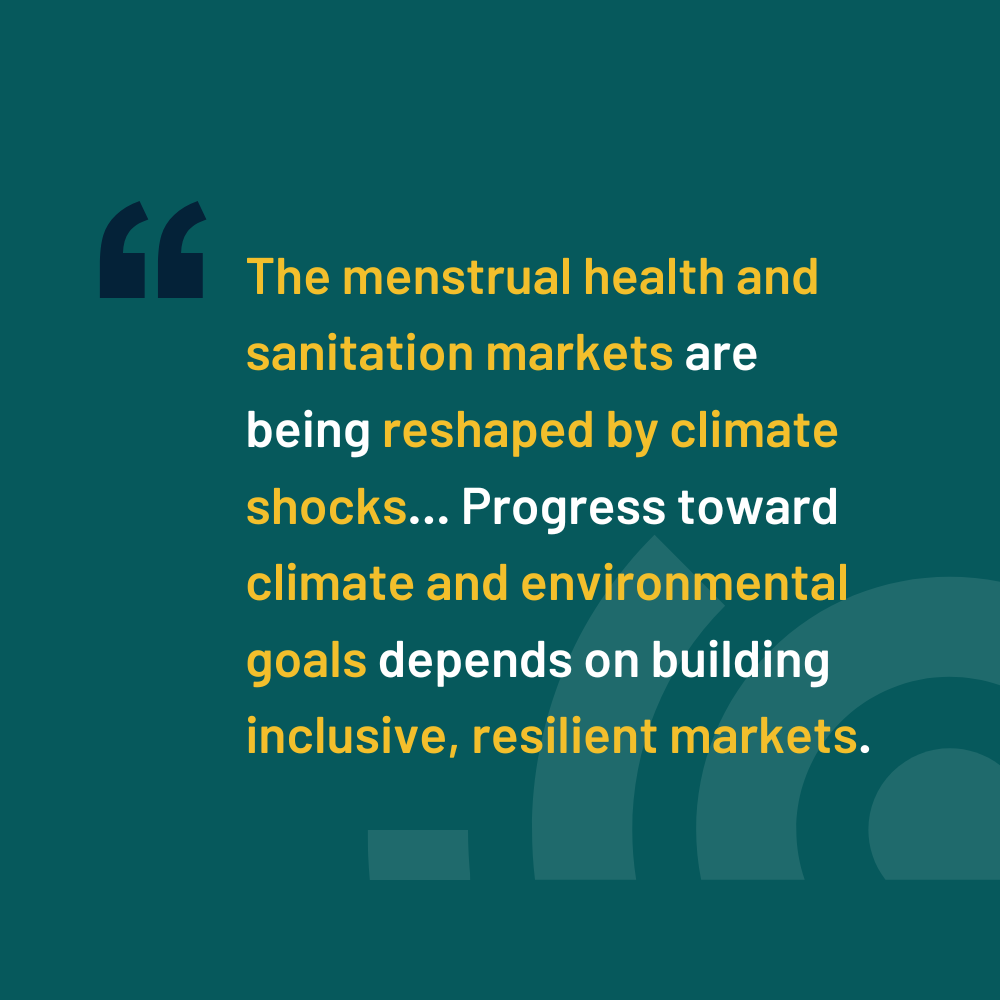
Building Sanitation Economies and a Thriving Menstrual Health Market: SHF’s Journey and Learnings to Date

In mid-2025, the UN Sanitation and Hygiene Fund (SHF) commissioned an independent Mid-Term Review (MTR) to document progress and provide forward-looking insights. More than a traditional evaluation, this review was a deliberate learning moment — an opportunity to assess SHF’s role, relevance, and contribution in a rapidly evolving development landscape, and to inform its next phase of growth and impact.
MAIN FINDINGS OF THE MTR:SHF’s catalytic model is not only relevant — it is necessary: The MTR affirms SHF’s unique and timely positioning at the intersection of public systems and private delivery. In a context of declining traditional aid and growing demand for sustainable solutions, SHF’s market-building approach is seen as both forward-looking and essential. A structured, adaptive approach that supports national ownership: The review commends SHF’s approach for enabling adaptive learning and country-led planning grounded in evidence, context, and market realities. This structured yet flexible model helps governments define tailored pathways to scale while reinforcing national leadership and accountability. Early signs of systems-level impact are emerging in priority countries: The MTR notes that SHF has moved beyond pilot thinking and is helping to embed market-based sanitation and menstrual health approaches into public planning, regulation, and financing frameworks. SHF’s work is influencing national policies, supporting enterprise ecosystems, and catalyzing domestic resource mobilization — laying the groundwork for lasting, inclusive change. Read the MTR Executive Summary here and consult the SHF Management Response to the MTR here. |
SHF was created to catalyse inclusive, sustainable sanitation and menstrual health economies and markets in Low- and Middle-Income Countries (LMICs) thanks to the support of its two founding donors: Switzerland and the Netherlands, and a growing partnership with the Gates Foundation. With an expanding presence in East and West Africa and growing engagement in South Africa and Asia, SHF aims to drive systems-level change by unlocking new forms of finance, building local markets and supporting public sector reform. The MTR confirms that this catalytic role is both timely and essential, especially at a moment when traditional aid is in decline, domestic resources are stretched, and the urgency of delivering on Sustainable Development Goal (SDG) target 6.2 has never been greater.
An Independent Assessment to Inform and Strengthen
Undertaken by independent consultants and grounded in the OECD-DAC evaluation framework, the MTR draws on more than 50 key informant interviews, extensive fieldwork in Uganda, and a broad review of documentation. It affirms SHF’s growing relevance and highlights the effectiveness of its approach and commends SHF’s role in helping governments expand access to services while shaping local ecosystems that can sustain and scale those services over time.
The MTR also recognizes SHF’s unique positioning at the intersection of public policy and private delivery. In particular, it points to SHF’s strategic focus on non-sewered sanitation and menstrual health — areas that remain critically underfunded — as a clear strength. It highlights the role of tools like the Sanitation Economy Maturity Assessment Tool (SANEMAT) and the Menstrual Health Market Maturity Assessment Tool (MH-MMAT), noting how these frameworks could help countries identify readiness, focus investment, and chart tailored pathways to scale. According to the review, these tools and the thinking behind them underpin SHF’s adaptive, differentiated model.
Beyond validation, the MTR offers constructive recommendations to help SHF deepen its strategic vision and expand its impact. It calls for sharper communication of SHF’s value proposition, stronger articulation of its collaboration model, and a thoughtful balance between scaling breadth and demonstrating depth. It also encourages SHF to continue building evidence and learning systems that reflect its catalytic role while remaining grounded in country-led priorities.
SHF has embraced these findings as a vital input into its 2026–2030 strategy. From refining how it engages partners to strengthening the way it communicates impact, SHF is already applying the lessons from the review. At the heart of this evolution is a renewed commitment to remain agile and accountable — to transform access, and enable systems to ensure any such transformation is lasting, equitable, and country-owned.
A Blueprint for Deeper Impact
“The MTR reaffirms what we have known from the outset: the world needs to fundamentally rethink how we view and finance sanitation, hygiene, and menstrual health. It also acknowledges that such transformation requires patience, perseverance, and — particularly — patient capital. The insights shared should instill confidence in SHF’s capacity to deliver systems-level change that expands access to services, financing, and markets in sustainable ways,” said Cecilia Akintomide, Chair, SHF.
In particular, the MTR acknowledges SHF’s evolution beyond proof-of-concept thinking in countries like Uganda, Kenya and Nigeria, and its active role in shaping discourse and policy at national and global levels. It urges SHF to continue to test, learn, and adapt while consolidating its role as a connector, enabler, and systems-level partner affirming that it is well placed to contribute to the sanitation and menstrual health agendas in transformative ways.
“In a development landscape marked by declining bilateral aid, fiscal constraints, and an urgent need for durable, country-owned solutions, the MTR serves as a timely and thoughtful contribution to SHF’s evolution. It recognizes that SHF’s role — as a connector, enabler, and innovator — is more relevant than ever while also providing important insights into how we can improve not just to strengthen access, but to build the resilient systems that make access last,” said Dominic O’Neill, Executive Director, SHF.
As SHF prepares for the final years of the SDG agenda, its path is clear. It will continue to invest in market-shaping approaches like Next Generation Sanitation and Capital M to transform access, working closely with Governments and partners to unlock catalytic financing and build thriving sanitation and menstrual health markets.
Read the MTR Executive Summary here and consult the SHF Management Response to the MTR here. You can also view the complete and original MTR document submitted to SHF here.



